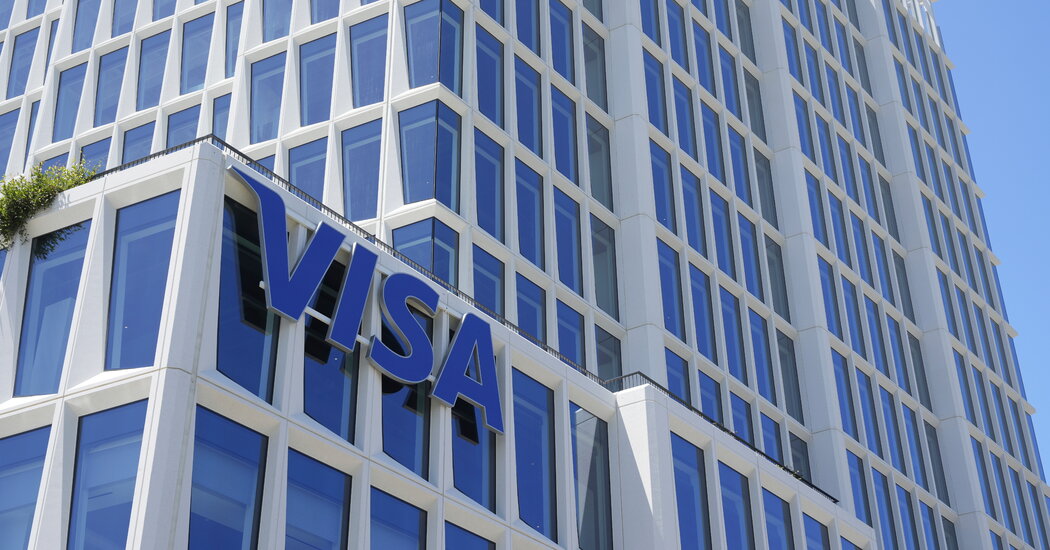US accuses Visa of debit card monopoly

The Justice Department said Tuesday it has filed an antitrust lawsuit against Visa, accusing the financial giant of unfairly suppressing competition in the debit card market. It is the latest in a series of lawsuits aimed at discouraging monopolistic behavior by large companies.
According to the government, Visa has for more than a decade entered into de facto exclusivity agreements with merchants and banks, encouraging them to route the majority of their transactions through Visa’s payment network. The company has maintained a monopoly by imposing or threatening to impose higher fees on merchants that also use other payment networks to process debit transactions, the Justice Department said.
The lawsuit is the result of an extensive investigation dating from years agoIt’s the latest in a series of efforts by law enforcement officials under the Biden administration to crack down on corporate middlemen they say needlessly raise costs and target the power of companies ranging from technology to agriculture. President Biden rolled out an executive order in 2021 that made aggressive antitrust enforcement a pillar of his economic policy.
Visa is a big middleman: It processed $3.8 trillion in U.S. debit transactions in the year through June, generating more than $7 billion in processing fees annually, according to the Justice Department. That amounts to more than 60 percent of all such transactions.
“Visa’s unlawful conduct affects not just the price of one thing, but the price of almost everything,” Attorney General Merrick B. Garland said in a statement.
Visa’s fees are largely invisible to consumers, but are paid by merchants and can be passed on to consumers, said a senior Justice Department official who was not authorized to speak publicly.
A Visa spokesperson declined to comment.
The antitrust violations the company is accused of include all debit transactions involving a physical card, as well as card-not-present transactions, such as online or app-based purchases. The crackdown on alternative card networks, which connect a cardholder’s bank to the merchant’s bank when a purchase is made, has reduced competition in the market and “slowed innovation in the debit payments ecosystem,” the Justice Department said.
The government also alleges that Visa deterred other companies, such as PayPal and Square, from entering the debit card market. It says Visa paid financial technology companies to become partners, rather than allowing them to evolve into rivals, citing internal Visa documents.
“Visa is abusing its monopoly position to thwart existing debit competitors and buy up potential rivals at the expense of consumers, merchants, banks and the competitive process itself,” Doha Mekki, deputy assistant attorney general in the Justice Department’s Antitrust Division, said in a statement.
The department’s concerns about Visa are longstanding. The antitrust division in 2020 accused of blocking Visa’s $5.3 billion deal to acquire financial technology company Plaid, arguing that Visa was looking to eliminate a rising rival. In that lawsuit, the The Ministry of Justice said that Visa already “had a commanding market position through its online debit monopoly, and would unduly extend that advantage by acquiring Plaid.”
Two months later, Visa and Plaid withdrew from their agreement.
Federal antitrust regulators have also scrutinized Mastercard, alleging that the company illegally suppressed rival debit payment networks. Visa and Mastercard together dominate the payments industry and have fought off accusations that they maintain a duopoly. Last year, the Federal Trade Commission reached an agreement with Mastercard that requires the company to share customer account information with rival networks and allows merchants to choose between rival networks.
The Justice Department has not yet decided what it will require Visa to resolve the lawsuit, the senior Justice Department official said. Analysts at Wells Fargo said they believed the review “will play out over a long period of time,” adding that “these situations are often resolved with manageable mitigation.”
Shares of Visa fell nearly 5 percent on Tuesday.
The lawsuit comes amid a broader focus by regulators on the financial industry. This month, the Federal Deposit Insurance Corporation’s board of directors voted to implement stricter guidelines for reviewing bank transactions. That same day, the Justice Department announced it was withdrawing from a framework established in 1995 that had guided the way it had reviewed deals. The move is likely to tighten oversight of bank mergers.
Together, these actions could create additional obstacles for Capital One’s pending $35.3 billion acquisition of Discover Financial Services, which is currently under review by banking regulators. The Visa lawsuit could highlight an argument by Capital One and Discover that a merger would create a stronger competitor to Visa and Mastercard, though critics of the deal have pushed back against claims that it would ultimately benefit consumers.
The Biden administration recently suffered a setback when a federal judge temporarily blocked a decision by the Consumer Financial Protection Bureau to cap late fees on credit cards at $8 per month. Last week, former President Donald J. Trump reignited the debate by proposing a cap on credit card interest rates.
In their crackdown on corporate middlemen and “unwanted fees,” President Biden’s antitrust enforcers have also targeted companies including Live Nation Entertainmentwhich owns Ticketmaster, and RealPagea manufacturer of property management software.




